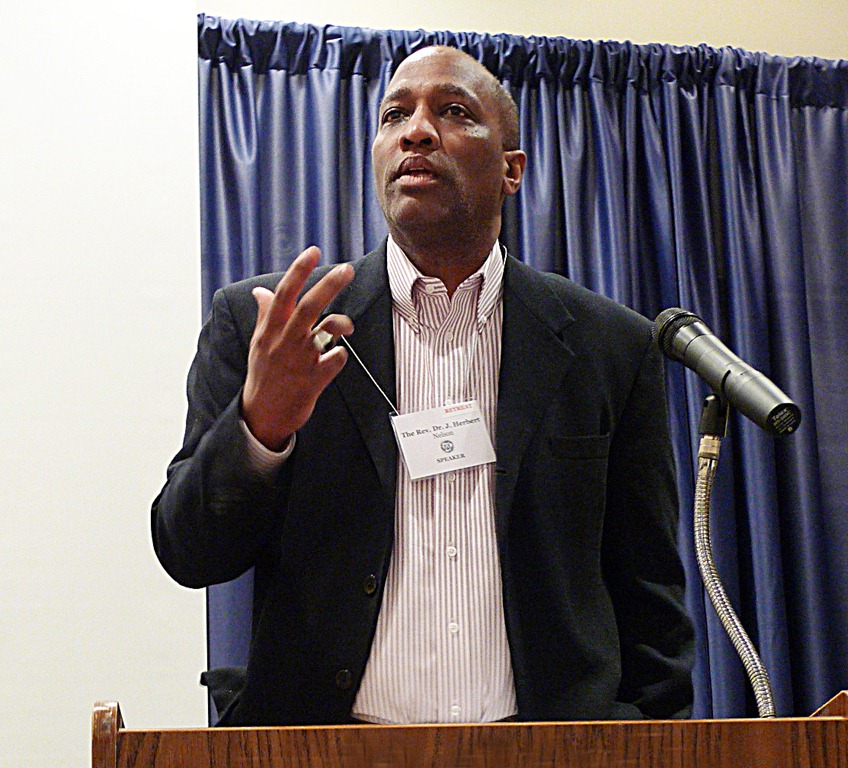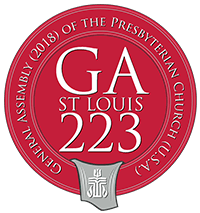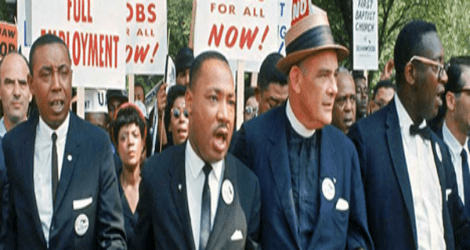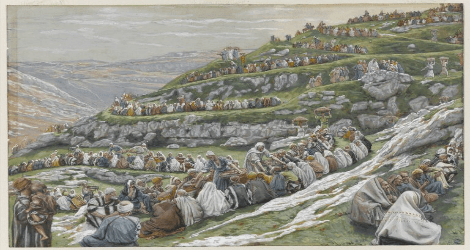Serving the Church by Serving Its Present and its Future
In the past twenty-one months, I have visited over thirty Presbyteries and two Synods. My visits are leading me to conclude the following:
- There are Presbyterians in significant numbers who are interested in political advocacy work. They need training to navigate and overcome the confusion created by the present political morass in Washington and across the country.
- Sessions and pastors are often fearful of raising political issues in congregational life. They view political issues as divisive. Consequently, members are left to form and express their political opinions without the benefit of guidance from their church.
- Young Adults are looking for a new paradigm for engaging their faith and politics. Many young adults are deterred from engaging congregational life, because many local congregations fail to interpret and contextualize biblical scripture to present day political realities.
All three of my observations call on church leadership to become more intentional about upholding a prophetic witness for ministry. The PC(USA) Office of Public Witness is committed to the prophetic tradition of the Old and New Testaments. We recognize that we are not policy wonks. Our role is to capture the prophetic essence of our mission as a church, by advocating for the social justice policy approved by the General Assembly of the PC(USA). We are often criticized, but the Bible reminds us that God’s truth is often difficult for powers and principalities to confront. Abiding faith in Jesus does not falter in the face of falsehood.
Our advocacy for justice on behalf of PC(USA) social justice policy is a daily reminder that God’s truth still marches on and confronts governmental powers and those who are elected to serve the people of God. I do not sympathize with pastors who cannot muster the courage to speak biblical truth in response to the contentious politics we encounter across our country today. While they remain silent and retreat in fear, the poor and middle class suffer at the hands of reckless political ideology. Faithful courage is gained by the willingness to resist fear.
___________________________________________
Congregational leaders need to expand their love beyond the desire for personal security. They must take a risk in the name of Jesus! This will enable the real church to arise from the ashes.
___________________________________________
The Bible reminds us that “there is no fear in love, but perfect love casts out fear; for fear has to do with punishment, and whoever fears has not reached perfection in love” (I John 4:18). The Book of Order, which we so diligently study and cite, reminds us that “the Church is called to undertake this mission even at the risk of losing its life, trusting in God alone as the author and giver of life, sharing the gospel, and doing those deeds in the world that point beyond themselves to the new reality in Christ.”[viii] I suggest that congregational leaders need to expand their love beyond the desire for personal security. They must take a risk in the name of Jesus! This will enable the real church to arise from the ashes. More importantly, it will contribute to each person’s own quest for salvation.
My third observation leads to a commitment that we have made in the OPW. Over the next twenty-four months, our primary focus will be to recruit, engage in ministry with, and empower youth and young adults. We will train young people to become prophetic advocacy leaders. College campuses, youth groups, conferences, local congregations, alumni meetings, seminaries, theology on tap, or wherever youth and young adults gather: there we will be eager to join them.
Our goal is to pursue their interest in becoming advocates for justice and for the PC(USA). This pursuit will embrace both theology and praxis. Our internship and summer fellowship programs are priorities for our office. In addition, pastors are invited to spend time with us while on sabbatical or study leave, so that they can learn to research, articulate, and advocate for social justice issues in their community, nation, and world. In the Office of Public Witness, we remain committed to hosting groups of all ages as they travel to Washington, DC, desiring to learn and to have hands-on experiences in the city and with advocacy on Capitol Hill.
Two events—Ecumenical Advocacy Days on March 23-26, 2012,[ix] and the Compassion, Peace and Justice Training Day on March 23, 2012[x]—are great opportunities to begin a journey of learning more about the biblical and policy work of our denomination and other faith organizations.
Conclusion
Our work on behalf of the Presbyterian Church (U.S.A.) is focused on assisting the denomination in making the shift toward justice advocacy ministry. We are implementing a model of community organizing for the purpose of casting a net of involvement over the entire denomination. Specifically, we seek to capture the attention and involvement of young people. This will require us to spend time in the places where young people gather while framing justice issues in the context of this generation’s experience and interest. To this end, we will focus our work for the next twenty-four months on youth and young adult participation with the OPW.
NOTES
[i] The office was renamed in June 2010 to denote the prophetic ministry of the office rather than its location (as denoted in the previous name – Washington Office). Theologians such as Robert McAfee Brown and Robert Franklin used the term public theologian to cite the public nature of prophetic ministry. This phrase was often associated with theologians, pastors and others who appropriate their gospel teachings and activities to advocacy for the poor and disenfranchised. As we reintroduce the PC(USA) OPW, a more prophetic witness for ministry is leading our work to complement our policy advocacy. Thus, the name change reflects our willingness to work with a wide range of persons and insitutions. These persons and institutions include, but are not limited to activists, justice advocates, congregations, governing bodies, and ecumenical/interfaith groups to promote the justice and public policy work approved by the General Assmbly of the PC(USA). We intend to lead these efforts with biblical and theological truth while leaning on the historical role of John Calvin’s intent to pursue with unrestrained vigor the transformation of elected officials for the purpose of rendering righteous judgements on behalf of God’s people and creation.
[ii] The Reverend Elenora Giddings Ivory served as Director of the Presbyterian Church (U.S.A.) Washington Office for nineteen years before resigning in 2008 to work with the World Council of Churches (WCC) in Geneva, Switzerland. A task force was formed to study the work and future of the Washington Office during the two year vacancy. The task force determined that a new model of advocacy was needed in order to address the need for greater denominational (membership) participation with the mission of the Washington Office.
[iii] See Jeff Kriebiel, Reflecting on Scripture with Community Organizing (Chicago: ACTA Publications, 2011)
[iv] By using the word “framing” in this instance, I mean the laws, rules, and other determinants which usually result in power distribution and the establishment of acceptable practices in a community.
[v] “Persons long silenced” is a phrase taken from the PC(USA) A Brief Statement of Reformed Faith.”
[vi] I served as Organizing Pastor/Evangelist of Liberation Community Church PC(USA). The ministry was chartered on April 11, 1999 by the Presbytery of Memphis (now Presbytery of the Mid-South). The church was the first African American New Church Development in Memphis Presbytery in forty-six years. My wife, Reverend Gail Porter Nelson, served as a Pastor to children and their parents for Liberation Community PC(USA) and was the first Director of the Basics Learning Center, Inc., a 501 3(c) organization affiliated with the ministry. She is now Stated Supply Pastor of Northminster PC(USA) in Washington, DC.
[vii] In previous Revised Standard translations, the word was translated “Counselor.”
[viii] The Constitution of the Presbyterian Church (U.S.A.) Part II Book of Order 2009-2011 (Louisville, KY: Office of the General Assembly, 2009) G.0400 Called to Risk and Trust
[ix] For more information and to register, visit http://www.advocacydays.org.
[x] For more information and to register, visit http://www.pcusa.org/washington.







Unbound Social